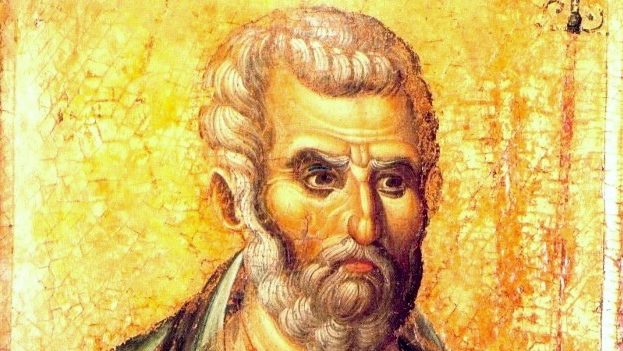St. Gildas was likely born around 517 in Wales, or north of England. Although not much is known about his family, he most likely came from a noble background, and had several brothers and sisters. Evidence suggests that one of his brothers was killed by King Arthur, but Gildas allegedly forgave Arthur for this.
In Gildas’ time, the glory of Rome had faded, and Maximus had sacked Rome and made himself Emperor.
Gildas was known for his piety and his education. He was not afraid to publicly rebuke monarchs who did not uphold Church teachings, even though rebukes were typically met with swords rather than Court penalties.
For many years, Gildas lived as a hermit on Flatholm Island in the Bristol Channel. He established a reputation for Celtic holiness that involved extreme self-denial and isolation. The Welsh maintain that while he lived as a hermit, Gildas preached to Nemata, the mother of St. David, while she was pregnant with David.
Around 547, Gildas wrote “De Excidio Britanniae” (The Destruction of Britain). The book contains a brief history of the island before Roman times and criticizes their rulers for loose morals. Gildas blames their sins for the destruction of Britain’s civilization.
Gildas also wrote a longer book, “The Epistle,” a series of sermons on the moral failings of rulers and the clergy. The book demonstrates Gildas’ vast knowledge of the Bible and classical works.
Through the missionary work Gildas did in Ireland, he converted many there, and may be the one who introduced anchorite customs to Irish monks. From Ireland, Gildas retired to Rhuys, in Brittany, where he founded a monastery. He wrote many works on running a monastery, but only the Penitential, a guide for abbots to set punishments, still exists.
St. Gildas died at Rhuys around 571. He is considered one of the most influential men in the early Church.

